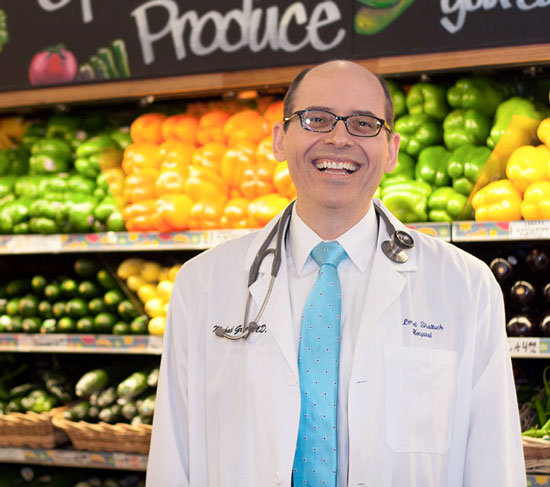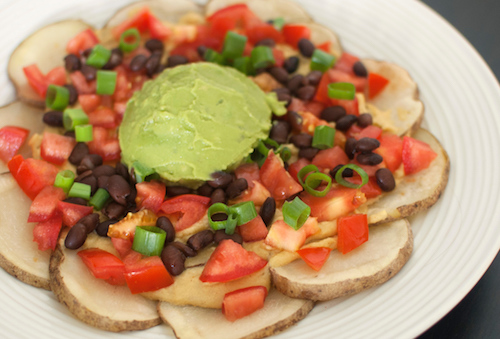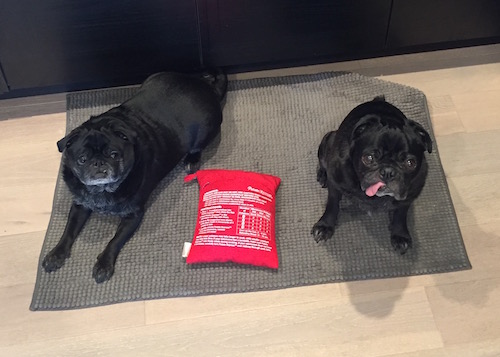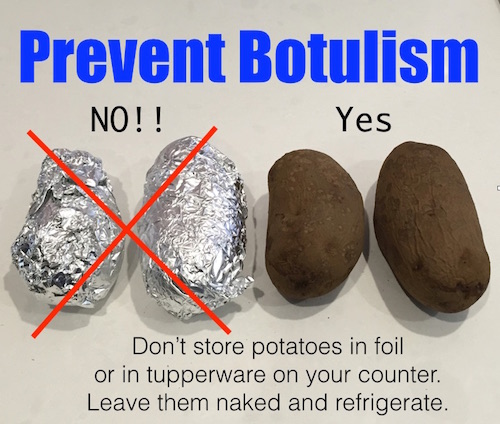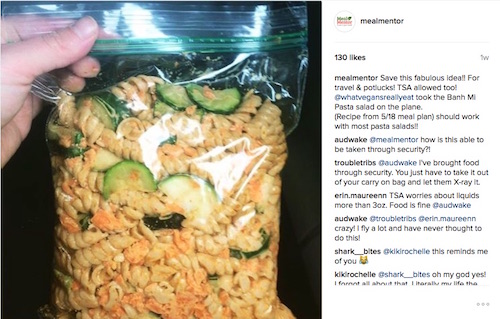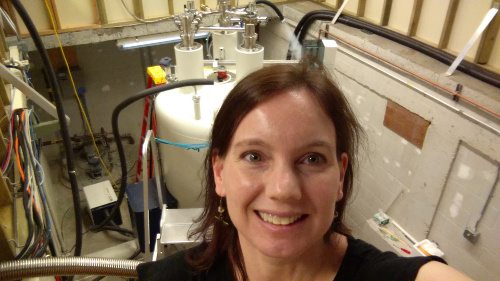May 30, 2016
(This post is also a podcast episode! Listen here.)
For the Season 1 finale I’ll be answering the big question that’s been looming all season:
Are we obese by design? That is, have we evolved or adapted to obesity?
But before we get into that question, I want to talk about alcohol.
HOW alcohol affects weight-loss has been a highly requested topic all season and I didn’t want to leave you hanging…
Alcohol
Here’s the deal with alcohol.
When alcohol is consumed, it’s the first fuel to burn.
That means anything else you eat WITH alcohol is probably going to be stored as fat, even if it normally wouldn’t be. (The fresh strawberries on the counter may end up in the pantry as jam, for example, right next to all your cans of chickpeas.)
To be clear: Alcohol does not turn into fat. Instead, by drinking alcohol, everything else you’re eating does.
You don’t have a “beer belly” you have a pizza-and-chicken wings belly (or whatever “food” you were eating before or with your booze).
And here’s the double whammy (you knew one was coming) consuming alcohol also effectively puts a lock on the pantry door, keeping you from being able to clean it out... even if you aren’t eating while drinking.
Booze basically presses the pause button on your metabolism because as long as there’s alcohol, you’re literally unable to burn the stores of fat in your belly, butt, or anywhere you can pinch.
Then too, alcohol reduces self-control and your inhibitions by temporarily impairing the prefrontal cortex. (That’s the basecamp that keeps you from acting on every impulse.)
AND a lot of the mixers are simple sugar-loaded, so they send your blood sugar on a rollercoaster ride that leaves you just dizzy enough that you bootycall your ex-boyfriends, and by ex-boyfriends I mean potato chips, and french fries, and mas margaritas – all the things you broke up with, but now start thinking, “I miss you! We’re soul mates! Let’s get married in VEGAS!”
OK, maybe I went a little too far there with my analogy… but you get the point.
Alcohol isn’t just calorically bad news, either. It’s metabolic bad news too and it’s also going to set you up for some serious self-sabotage.
Actually, let’s back up and talk about the calorie part. Alcohol is its own calorie bomb at 7 calories per gram, just below pure fat (a.k.a. oil) which has 9 calories per gram – so yes, booze is a lot like drinking oil. And also like oil, alcohol is totally devoid of nutrition (“empty calories”) and not satiating at all. Carbohydrates and protein, by comparison, are 4 calories per gram, so less than half... Booze is a lot like taking seconds without the seconds.
AND if a hangover isn’t enough of a punishment, most people have surges in cravings, particularly for fatty and greasy foods the day after drinking, because the body needs to repair all the damage you caused and it knows fat is the most calorically-dense, and like you, it wants the quick fix…
PLUS if you’re dehydrated, which, of course you are, since alcohol is a diuretic, you’re even more likely to feel twinges of hunger, or what you think is a hunger pain but is probably your body saying WE NEED FLUIDS.
BUT I get it. Booze is fun and a huge part of our social lives.
So how can one have a cocktail and still lose weight?
First, you’ll need to budget for it calorically, which doesn’t mean skipping meals to save calories, but rather limit all other splurges that day and probably that week too. What I mean by that is, if you’re going to participate in the champagne toast at a wedding, pass on the cake. Or pass on the pizza and chicken wings and eat a salad with your beer. Hey, I never said you could have your cake and drink your beer too!
More importantly: Drink simply. The least amount of ingredients, the better. Have whiskey or bourbon on the rocks. Mix flavored vodkas with water or seltzer or mix hard liquor with a zero-calorie beverage. Rum and Diet Coke, gin and diet Ginger ale, vodka and Sprite Zero...
This next part is anecdotal. There haven’t been a lot of studies comparing the different kinds of alcohol (the studies we do have tend to compare total consumption with no deference given to exact drink) so I can’t science this too much (yet) BUT over the years, both with my personal weight-loss journey as well as helping hundreds of others through meal mentor and the meal plans, it seems that wine and beer are the most inhibitive when it comes to weight-loss. That is, if you drink wine or beer you’ll gain or lose less than someone who has a shot of tequila.
I’m not sure if it’s because beer is basically liquid bread and wine is basically spiked juice, or because people tend to eat when they drink beer or wine, or because people tend to drink more volume of beer and wine, or drink beer or wine longer (meaning for more hours), but it’s something I’ve definitely witnessed first-hand even if I can’t work out the science part yet.
What about the studies that say alcohol consumption is healthy? Quoting Dr. McDougall here, “We love to hear good news about our bad habits.”
If you maintain even somewhat of a healthy diet, as I presume you are – it takes a healthy-minded person to listen to a research podcast focusing on health and nutrition – then drinking isn’t going to make you healthier, but if you’re the average American on the SAD diet, then maybe.
Bottom line: I think we can all agree alcohol isn’t a bowl of fruit and kale. And that alcohol is high in calories and likely to make you overeat more calories or at least prevent you from burning calories, which is doing you no favors in the battle against the bulge because the one and only beautifully simple thing about weight-loss is what? That’s right, you have to have a caloric deficit and not drinking definitely makes that easier.
Now for the big kahuna of the episode…
Are we obese by design? Have we evolved or adapted to obesity?
Here’s what we know from this season:
We are adapted to eating cooked foods.
All animals (including fish and insects) grow best on cooked foods, but unlike all other animals, we humans are actually adapted to cooked foods, meaning we can't eat or thrive optimally on an all raw wild diet.
This is proven by looking at our anatomy and evolutionary history. For example, humans have small mouths, small teeth, weak jaws, and tiny lips, all of which are adapted to finely mashing softer, cooked foods NOT chewing tough, raw material.
We also have small stomachs and a short intestinal tract which limits our effectiveness at digesting raw materials, but all the small things enable us to process cooked foods with exceptional proficiency. From an evolutionary standpoint, this was like winning the Powerball, especially when food was so scarce.
Without cooking, we would have to eat approximately twice our weight in raw materials every day (like apes do) meaning our entire job would be to eat while simultaneously looking for more food all day long.
Anyone who has ever been in debt can attest it's difficult, if not impossible, to advance when you're living paycheck to paycheck, which is what we would essentially be doing.
But by cooking our food? We increase energy gains with much added effort. That's like getting a big fat raise and Christmas bonus. (The Energy Theory of Cooking is the basis of Richard Wrangham's book, Catching Fire: How Cooking Made us Human, which I highly recommend it for a deeper exploration.)
There is a massive downside to our exceptional proficiency at digesting cooked food in this modern world though.
The more tender, soft, or finely divided a food is, the more easily and completely it is digested, which brings us back to the Oreo vs. orange example – that you're probably not going to digest or store every calorie or nutrient of bioavailability in an orange, but you can bet your bottom dollar that you’re probably going to digest and absorb every calorie in an Oreo.
Then too, the softer a food is, the easier it is to digest, and the easier it is to digest, the less metabolic effort is required, and less metabolic effort means you're saving energy.
In other words, highly processed foods make you more efficient at digesting and storing. You become more like a Prius and less like a Hummer, and if you're burning less gas... well you know what that means. More storage, no caloric deficit = fat fat fat.
So modern foods definitely tilt the scale towards being obese by design.
For example, most processed foods have been stripped of any fiber so they literally “melt in your mouth” and their ingredients have been blended, pounded, pulverized, or otherwise
altered to send you straight to the “bliss point.”
For example, scientists at big manufacturers have fiddled with the distribution of fat globules to affect their absorption rate (or “mouth feel” as it's known in the industry). The physical shape of salt has also been manipulated so it hits the tastes harder and faster, improving the “flavor burst.”
This makes processed foods more alluring, pleasuring, and irresistible (so you eat more of them), but it also makes them much easier to digest, reducing you metabolic efforts.
Unfortunately, super absorption isn’t the only consequence to modern foods. These foods also are nutritionally inadequate, not satiating, and consuming them can also affect how you experience the catabolic phase of digestion, which can lead you to still more eating, which is an even bigger problem...
But before I can get into all that, let me clarify one point quickly: Humans are adapted to cooked foods. A strict raw food diet cannot guarantee adequate energy supply. While processing and cooking gives calories, there’s a wide spectrum there. Dieters please don’t start fearing chopped tomatoes, chunky stews, hummus, or applesauce. Their calories are not the same as the super absorbent calories in pretzels, Twinkies, and Big Macs.
Eating too frequently also makes us fat. (OR at least, it isn’t doing us any favors.)
Humans are evolved to eating only a few hours per day.
For example, Dr. Panda’s work (from episode 6) tells us that our use of artificial light at night leads to an artificial extension of our feeding times which interferes with our circadian rhythms. That in turn reduces our fasting time between meals, which throws off our digestive system plus the hormones and enzymes that manage it, so then you don’t process and use the consumed energy as efficiently, which means more storage, which contributes to obesity.
(If you are looking for another reason to batch cook the meal plans, this is a good one. The sooner you can eat, the sooner you can start your fast and/or live more in-tune with your circadian rhythm.)
And speaking of fasting, Dr. Panda’s theory lines up with intermittent fasting (the science of cellular metabolism) from episodes 5 and 6 and Fuhrman’s anabolic and catabolic hunger from episode 9 perfectly. I’ve talked intermittent fasting to death this season, but the basis is that by eating all day, your mitochondria (the engines in all my Prius vs Hummer metaphors) never get a break from processing calories and that’s problematic because like all engines, mitochondria work better when they’re properly maintained.
The other problem has to do with overfilling. Your body stockpiles calories in two ways: in glycogen (quick-burning fuel) which is in your muscles and liver, and as body fat, the slow-saved-for-a-rainy-day fuel.
Using your groceries as an example: Your glycogen is a bowl of fresh strawberries – instant food, while your fat is a can of dusty chickpeas in the back of your pantry. By fasting and not eating so much all the time, your body gets to the chickpeas sooner.
Let me explain: When you wake up, your body starts looking for energy to burn to power up your arms and legs, so it goes straight to all the quick-energy ready and waiting in your glycogen. But then you eat breakfast – oatmeal, a bagel, smoothie, whatever. And now your body has a NEW source of glycogen to burn – breakfast!
Your body is thinking, “Why would I eat this dusty can of old chickpeas if there’s fresh fruit available now? That fruit’s going to go bad sooner too so let’s eat the strawberries and stick these chickpeas back in the pantry. What’s another few days or months? It can wait.”
By eating, you basically ran out to the store to buy new groceries, rather than suck it up and eat what was in your cupboard. And if you don’t completely zero out your pantry before you go shopping, or take care to only buy EXACTLY what you need down to the last tablespoon of tomato paste, that’s exactly how you end up with an overflowing pantry, or excess body fat.
Your pantry and belly are the same here: it’s all food you took in and didn’t use yet.
To lose weight you have to stop the overbuying and duplicate purchasing.
Day after day you do this with eating all the time.
And a big reason why we do this is because we’re all addicted to the anabolic phase (probably thanks to that horrible “eat 6 small meals to lose weight” advice we were given. For the record, that is really, really bad advice).
What do I mean we’re all addicted to the anabolic phase?
We like to feel full and satiated.
Most of us all-out fear hunger (which is another issue for another episode) and we loathe the withdrawal symptoms that happen a few hours after we’ve eaten when we enter the catabolic stage.
So we eat again because eating provides relief from those symptoms (and indulging the addiction is pleasurable). But this also makes becoming overweight inevitable because we have to keep eating, or we have eat heavy meals that require long periods of digestion, in order to keep the pleasureful digestive stage going. But this delays the catabolic phase where we can actually use up the very foods we’ve taken in, so we effectively stockpile (store fat) instead.
Choosing poor quality foods also makes you want to eat MORE poor quality foods AND eat more food overall because of the “toxic hunger” – those unpleasant feelings during the catabolic phase that we interpret as hunger, when it’s not actual biological hunger but a hunger for relief from detoxification symptoms of a poor diet.
Wrangham said something about eating too frequently and hunger too, and how going without food was a normal part of the human condition. He wrote, “Until the development of agriculture, it was the human fate to suffer regular periods of hunger. Typically it seems for several weeks.”
Bottom line: the one and only beautifully simple part to weight-loss is that you must have a caloric deficit – and being overfed, in any way shape or form, is not doing you a favor.
FYI, it’s not all our fault we are obese and overeat.
Wansink’s research on environmental stimulus from episode 8 sparked my question, “Are we obese by design?”
His research tells us that we are not all gluttons and food addicts on an eating frenzy spree 24/7. Food is addictive, true, but our very environments have a million triggers, nudges, and scripts that influence us to eat eat EAT and overeat. (Plus all the misinformation floating around doesn't help.)
Brian says, and I completely agree, that we can’t rely solely on willpower. Instead, we have to change our environments, our thoughts, and modify our behavior (which, surprise! Is the focus of SEASON 2!!!!)
This is why it's critical you have a meal plan in place, follow it, and pre-portion to lose weight.
You just can't rely on intuition or guesses and estimations or willpower. And you definately, definitely can’t rely on labels or fitness apps because they’re off by 20% or more (more on that soon).
What you need to know: the food you choose to eat matters most.
Not only that a calorie is not 'a calorie' – you’ll remember from episode 2 that not all calories are nutritionally equivalent (i.e. carrots vs. carrot cake), that not all calories satiate the same way (i.e. potatoes vs. potato chips), and that some calories are more easily absorbed or stored than others and/or affect how you might absorb and store future calories.
For example, predigested foods (like smoothies or hummus) or highly processed foods (like Oreos and Doritos) are absorbed much more easily than whole foods.
Likewise, sometimes the metabolic cost is too high to store the excess calories you took in. It all depends on the source of that calorie. For example, dietary fat is very easily stored as fat, but calories from carbohydrates are not so easily stored (a process known as facultative dietary thermogenesis) because humans are very inefficient at de novo lipogenesis (the process of turning sugars into fats).
Remember too that there’s also no such thing as “slow metabolism” or “starvation mode” and that you can’t break or screw-up your metabolism, but that extreme, unhealthy, and herculean efforts to lose weight may have temporary or permanent physiological and psychological consequences.
I talked a lot about this in episode 7 when I discussed the Biggest Loser article.
One point I’ve been trying to make all season is this: we can’t cheat or out math nature and anytime we try to, we pay a consequence.
I think the Biggest Loser episode really exemplifies this. It’s also a testament that when you do anything radical, or just anything in the body period, too many variables come into play to predict or pinpoint causes or effects with specificity.
And since I brought up the Biggest Loser article and herculean exercise, let me touch on that topic quickly since exercise is another topic that comes up all the time with our members.
Why exercise won’t help you lose weight
A lot of people assume I’m anti-exercise because I discourage it during weight-loss. For the record, I’m not against physical movement in and of itself. I simply recognize that it’s a lot easier to control caloric input for weight-loss than it is to create deficiency with caloric output via exercise.
Brian Wansink and David Zinczenko from this season are both in agreement with me.
David noted, “It would would take a 155-pound man 15 minutes of jogging to burn off a Twinkie. Which is a lot of time to burn off something you ate in less than a minute.”
And Brian’s pudding study was what shifted my mindset OFF exercise for weight-loss altogether.
In the pudding study, Brian + team broke conference attendees into three groups. The “control” group left the lecture and went straight to lunch. The rest were divided into 2 groups, one being told they were being taken on a scenic walk before lunch and the other group was being taken on an exercise walk. It was the same walk, same loop, same pace. The only difference was the exercise group walked with a trainer who told them how far they went, while the other group was told about plants or birds they saw.
Guess what happened:
The exercise group took less salad and more chocolate pudding – 35% MORE chocolate pudding.
Brian tried this with another group a few days later. Instead of pudding at lunch, they brought M&M’s out a few hours later during an afternoon break. The exercise group took more than twice as many M&Ms.
Brian says, “when we believe we have sacrificed, we compensate by rewarding ourselves later.” (This really makes me wonder about the psychological effect on the Biggest Loser contestants…)
Anyway, here’s one other point Brian made from his studies: A new gym membership comes with three added pounds of fat. Join a gym, gain weight (sorry, it’s not muscle).
Fitness apps like MFP and cardio machines screw you over too because they’re so hideously inaccurate and overgenerous. There was a rash of articles earlier this year attesting to this and that you can’t lose weight from exercise. See the shownotes for links.
Here’s also a testament from a meal plan user:

Carmen’s referencing another point I make often to members but haven’t had a chance to talk about on the podcast yet: Exercise creates too many variables and if you’re exercising all the time your body is getting mixed messages about what you want it to do. Do you want it to burn off fat or get busy doing tons of repair work. Stop making the chore list so long and confusing!
But ultimately, I think the main point about exercising and the unconscious eating, is that there is a suffering component there. We reward ourselves when we feel we have suffered. So people who are forcing themselves to go to the gym or play a workout DVD, and are doing all these things "to lose weight" or "get fit" are suffering and they’ll reward themselves consciously or unconsciously, or both.
For example, if I drag Carly on a 6-mile walk with me (Carly is allergic to exercise – she gets no joy out of it) even if she ends up enjoying the time we spend together, or the scenery, or even feels "I'm glad I did that" afterward, because hiking is not something she normally does on her own, because it was something I made her do, she will reward herself consciously or unconsciously or both because she suffered... HOWEVER, if Carly & I went shopping all day at the mall on Saturday, trying on clothes and stuff, we would probably also walk 6 miles, but that suffering mental component is not there, so Carly is at no risk for rewarding herself consciously or unconsciously or both.
I see this “compensation” all the time with my husband too. He LOVES baseball. Loves everything about it, even playing it. He will play baseball hard for several hours and eat a little granola bar in the middle of the game. But if I take him hiking with me, which I know he does not enjoy, but he comes because he knows I love it and want him to, he always ALWAYS eats a ton more food that day. Realistically, the hike did not burn more calories than an afternoon of baseball, but it's that mental suffering component.
The biggest problem is how dishonest people are. They say they like working out but they don't really. They might like the results it gets them, they might like the status they get from saying they workout on Facebook, but most people don't actually like to exercise, and don't think they can admit that either.
If someone genuinely likes exercising, then they won't sabotage themselves. How do you know you genuinely like exercise? You’ll pay $15 to do it every time. (Test this by donating $15 to charity every time you exercise). You’d gladly pay $15 to see a movie or buy a new top (two things you enjoy) and you’d pay that for a manicure and probably a nice lunch or two drinks with friends. These are all things you enjoy, but aren’t necessities, and you easily pay $15 or more to do them. So if you “like” exercise, you’ll pay $15 to do it.
To summarize, I’m only “anti-exercise” as a weight-loss strategy. For four reasons:
1. You can’t out-exercise your mouth.
2. Most of us have no time and no interest. (Let’s be real.)
If you still need convincing think of it this way: It’s a far better investment the time you would spend going to the gym on shopping and batch cooking your meal or even just doing some household chores, most of which burn a lot of calories but do not have that same mental trick.
3. Exercising tends to be more self-sabotaging than self-supporting.
4. When I was a personal trainer, clients used to get upset that they weren’t improving and wanted to blame me. I’d get real with them and say, “Look I’m only with you 2 hours per week, you’re with you, 166 hours per week.”
Final thoughts: Here’s a quote I came across recently that I really liked:
“If your efforts can be summarized as cyclical, episodic, concentrated bouts of suffering, during which your aim isn’t the healthiest life that you can enjoy but rather you can tolerate, well, go figure you’re not likely to stick to it.”
This echoes what I say over and over with Meal Mentor and the Slim Team Training Program. Nothing you do with your diet and lifestyle is temporarily, unless you only want your results to be temporary. Marathoners don’t get to cross a finish line and stay there forever. They have to keep training. You have to take it one maintainable step at a time.
The best diet is the one you don’t know you’re on and the one you’re not always thinking about.
Liking the life you're living while you're losing weight is the big secret along with having a plan in place and a support system in person or online.
Finally, I’ve spent this whole episode trying to find a 1-liner that beautifully sums all this up. Like Michael Pollan’s famous, “Eat food. Not too much. Mostly plants.”
Maybe I can work off that and say, “Eat mostly plants. Not too much, too often, too early or too late.”
Thank you for listening to Season 1 of the Shortcut to Slim podcast. If you have enjoyed these episodes, please leave a review on iTunes and share this podcast with your friends.
Download your free research-based 7-day meal plan at getmealplans.com and leave the guesswork and science to me.
